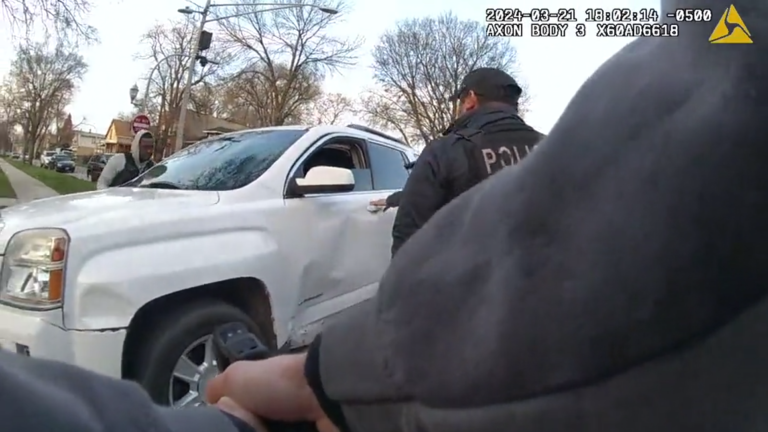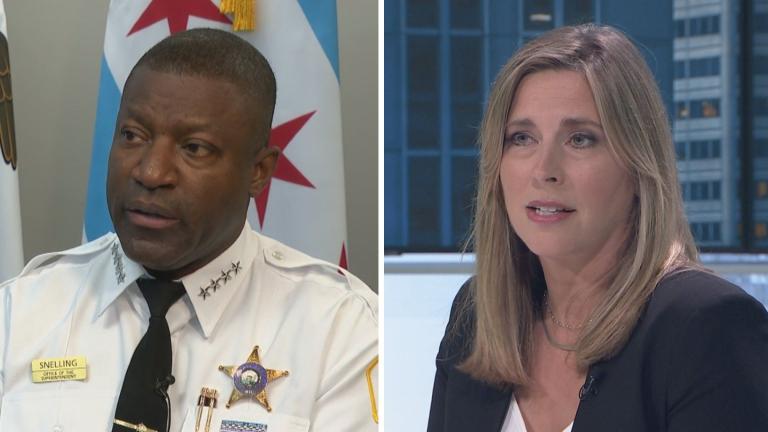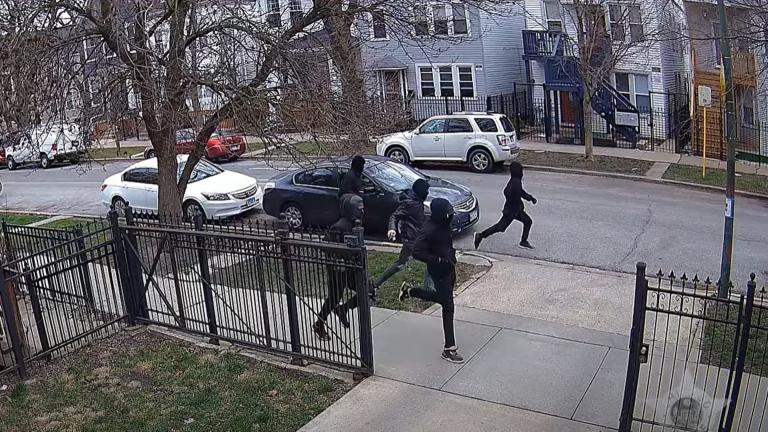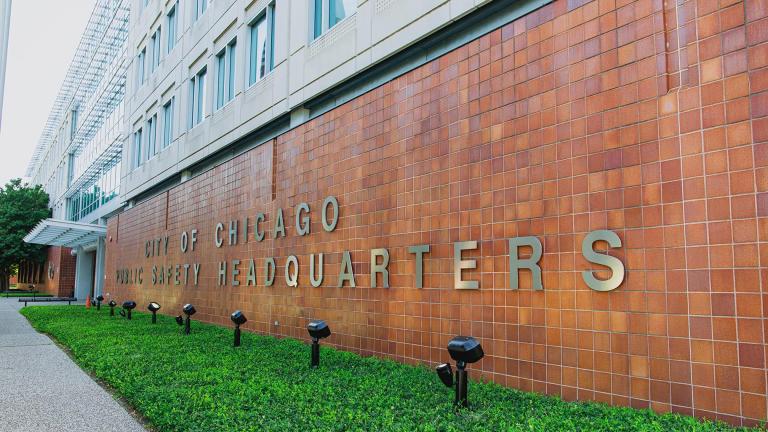Video: Chicago Police Superintendent Larry Snelling appears on “Chicago Tonight: Black Voices” on Oct. 18, 2023. (Produced by Brandis Friedman)
Larry Snelling may be new to being police superintendent, but he’s well aware of the department’s longstanding issues with community trust, court-mandated reforms and accountability.
The Englewood native has been Chicago’s top cop for less than a month, but after spending nearly three decades serving in various roles throughout the department, he believes he knows what’s needed to make improvements for his officers and residents throughout the city.
“Everybody in Chicago is a stakeholder right now,” he said during a one-on-one interview with WTTW News on Wednesday. “Nobody can sit on the sidelines. We need the support of others, we need the backing of others because I’m going to make sure we’re supporting everybody else in this city. So, if we work in lockstep partnership with everybody, I think we can get a handle on what’s going on in Chicago right now.”
Snelling was confirmed as superintendent of the Chicago Police Department just three weeks ago — becoming the fourth different person to lead it in less than a year — and faces a laundry list of challenges, perhaps none bigger than the task of restoring the community’s trust in police and meeting court-ordered reforms under the consent decree.
Earlier this month, the independent monitoring team overseeing those court-ordered reform efforts issued a report after residents expressed concerns that officers had abused their authority to stop and search for years, causing many to fear police.
Snelling said a solution is additional training to make sure officers understand that when they make stops, they’re based on reasonable suspicion and probable cause.
“And we have to reinforce that,” he said. “We have to have our supervisors trained to make sure our officers are doing those things.”
“There has to be a level of accountability all the way up the chain,” Snelling continued. “However, I believe that when our officers are given the appropriate training, the appropriate direction, they will police constitutionally. It’s always about the message that’s coming from the top.”
According to the latest report from the monitoring team, the city is in full compliance with approximately 5% of the 4-year-old consent decree.
Snelling said it can take a significant period of time to actually reach full compliance with any single requirement in the consent decree, and pushed back on the notion the CPD is falling behind.
“My belief also is to not rush the consent decree, especially the training aspect of it, because we want to get it right,” he said. “We don't want to just say that we’re in compliance, we want our officers to actually be in compliance. Where our officers are getting the best possible training. We don’t want to put our officers through training, we want our officers to be trained, and there is a difference there.”
Mayor Brandon Johnson previously vowed to terminate the city’s contract with SoundThinking, formerly known as ShotSpotter, but Snelling defended the system during a contentious City Council hearing last year.
Snelling defended the technology again Wednesday, denying that it’s a “tool of surveillance” as some critics have labeled it, while claiming it gives officers a leg up in responding to violent crimes.
“If we as police officers have the opportunity to get to a job immediately, even prior to a 911 call, it gives us the opportunity to get to that job and maybe, maybe apprehend someone who is shooting,” he said. “But bigger than that, if there’s someone who's been shot, it gives us the opportunity to render live-saving aid if we get there ahead of time.”
An audit by the Chicago inspector general found the system rarely alerted officers to an actual shooting, and progressive members of the City Council believe it contributes to the overpolicing of Black and Latino communities.
And while the number of shootings recorded across Chicago is down more than 12% year-over-year, according to CPD data, the number of ShotSpotter alerts recorded thus far in 2023 is up nearly 14%.
Johnson has promised only to consult with Snelling on the city’s contract.
“Obviously the mayor is the mayor,” Snelling said. “I’m going to let the mayor make the decisions that the mayor makes, but we will and should have conversations about this.”
Heather Cherone contributed to this report.
Contact Matt Masterson: @ByMattMasterson | [email protected] | (773) 509-5431








